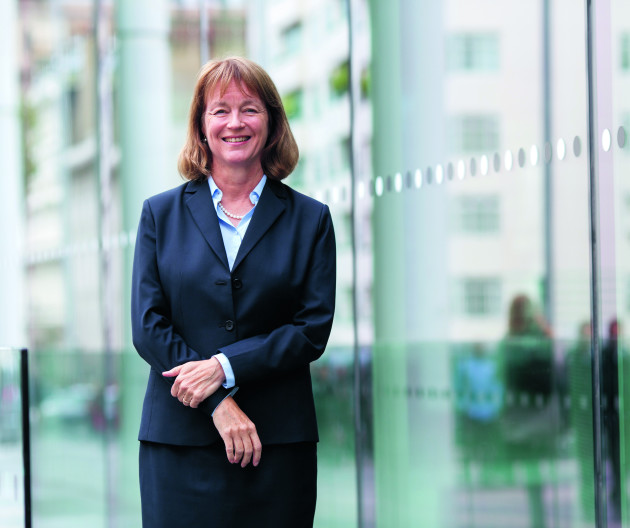Innovation, public health and blue-sky discoveries: the fuel of post-pandemic momentum
 The global pandemic has tested everyone, strained our ways of working, teaching and learning. The past year has presented a seemingly continuous stream of challenges; our students, alumni and staff have met those challenges with determination, creativity and foresight. They dealt with the difficulties of today without losing their focus on the future.
The global pandemic has tested everyone, strained our ways of working, teaching and learning. The past year has presented a seemingly continuous stream of challenges; our students, alumni and staff have met those challenges with determination, creativity and foresight. They dealt with the difficulties of today without losing their focus on the future.
The restrictions imposed in the UK and elsewhere forced us to rethink how we teach. Our students and staff developed a range of innovative programmes to ensure that Imperial continues to educate future generations of leaders in science, engineering, medicine and business. Multi-mode education, remotely controlled laboratories, travel-free expeditions, ‘labs-in-a-box’, turning lecture halls into learning studios, and augmented-reality medical examinations are but a few examples of how addressing the challenges of today became the beginning of a blueprint for the future.
We begin to emerge from the worst of the global pandemic with a fresh appreciation of the many contributions the members of the Imperial community make when they apply their talents to a new challenge: our engineers created innovative tests for COVID-19; our scientists and medics studied the disease, the ways it harms people and how to treat it; and our economists advised our government and others. All the while, we had numerous medical students and staff caring for patients on the front lines.
It’s a testament to the College that we foster ‘wacky ideas’ and let academics pursue their passion"
Professor Alice P. Gast
Throughout this year, the world gained an unprecedented understanding of the critical importance of excellence in public health. In our £100m campaign for the School of Public Health, we define public health as the art and science of preventing disease, prolonging life and improving health. This view should be a holistic one, and we are finding that our School of Public Health has never been more important.
While our epidemiologists in the Jameel Institute led the way in understanding waves of infection, transmission of new variants and impacts of mitigations, as well as vaccination strategies, their colleagues in the School were ensuring that other aspects of the health of the public were not forgotten. You can read about two of these public health matters in this magazine.
The lockdown put more of us and our families into an even deeper relationship with our electronic devices. We should ask: what are the current and future impacts of this on our health and our society? In this issue, you will read about the insightful study led by Professor Mireille Toledano, Director of Imperial’s Mohn Centre for Children’s Health and Wellbeing, investigating the impact of mobile phones on cognition and wellbeing in young people.
And throughout London and most big cities, an important question we all want to ask is: what are the health effects of the air I’m breathing? Professor Frank Kelly, the Battcock Chair of Community Health and Policy, and his Environmental Research Group are just the people to ask. From advising policymakers to informing the public, Kelly’s group has been at the forefront of air pollution and public health research.
These impressive studies come from years of dedicated research and education of the next generation. Nowhere is a view of future
Throughout this year, the world gained an unprecedented understanding of the critical importance of excellence in public health"
Professor Alice P. Gast
possibilities more evident than in the unfettered blue-sky research that Imperial academics pursue all the time. It’s a testament to Imperial that we foster such “wacky ideas” and let academics pursue their passion. Their discoveries came to pass thanks to the freedom to pursue an idea, follow a hunch, develop a dream. These novel projects were made possible by Imperial’s Presidential Excellence Funds, philanthropy and government support. As the UK and countries around the world look to recover following the pandemic, they must realise that it’s not always the quick solution that is the most powerful or longest lasting.
We must keep this in mind as we look ahead at the challenges we face, including those we cannot predict. As a society, we too often focus on immediate problems to the exclusion of thinking about the problems that loom over the horizon. If the past year has taught us anything, it should be a clear call for sustainable investment in the research and education that made Britain’s impressive scientific response possible.
Professor Alice Gast is President of Imperial College London and is an internationally renowned academic leader and researcher.